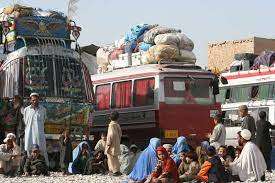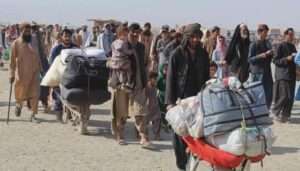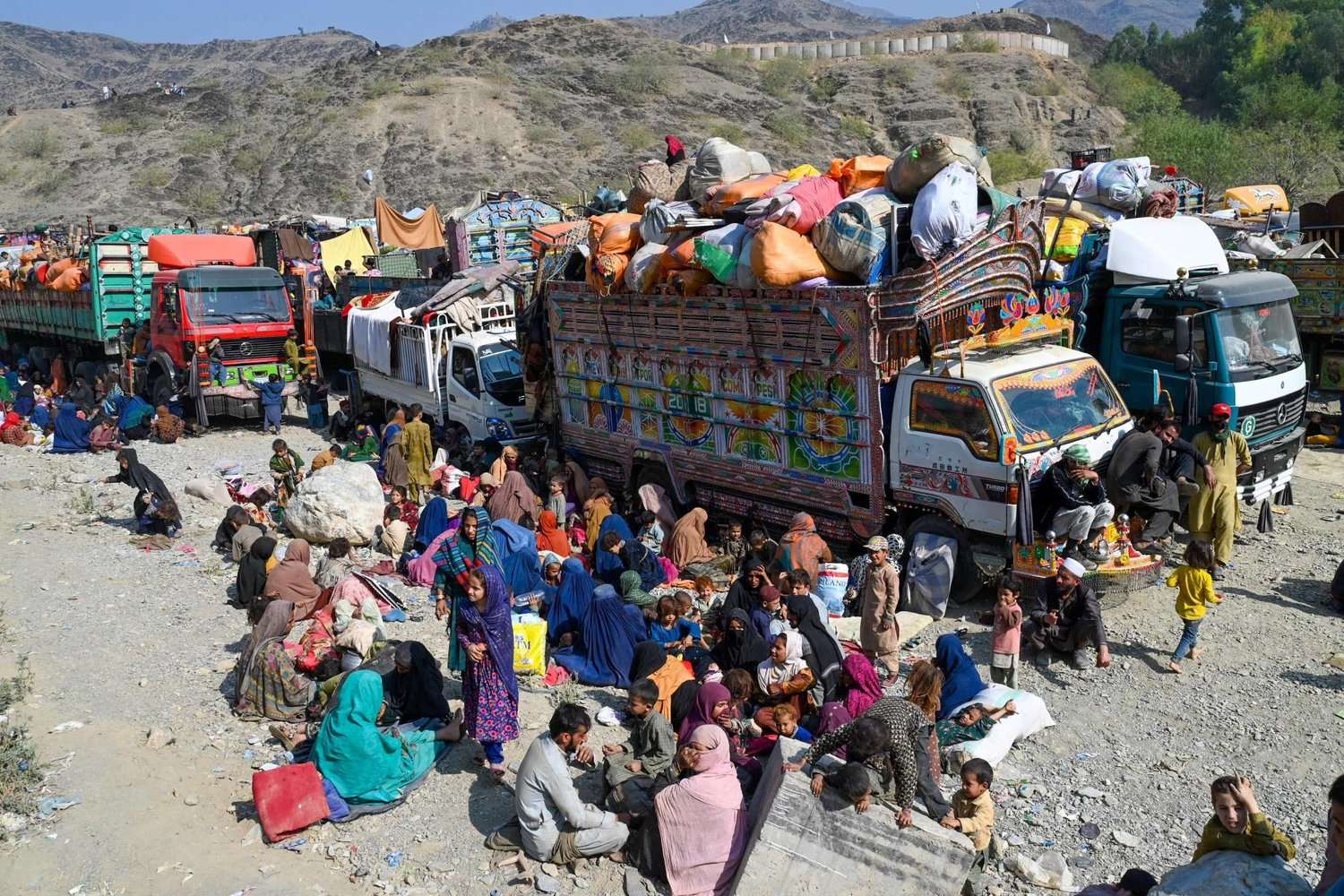Deadline Expiration and Repatriation Strategies
The return target of Afghan Refugees till November 1st has come and gone, marking the expiration of the voluntary deadline. The governmental machinery has, in response, finalized an array of strategies to execute the mandatory repatriation.
Balochistan’s Chaman border emerges as a primary exit point, witnessing the majority of illegal Afghans seeking repatriation. Despite the challenging law and order situation in the province, it remains a gateway for those in search of employment, albeit at the expense of local laborers who face reduced opportunities.
The breakdown of repatriation and border stations
Breakdowns reveal that the majority of repatriations occurred through the Chaman border in Balochistan, with 80 thousand illegal Afghans returning. Designated border stations in KP, including Torkham, Kharlachi, Ghulam Khan, and Angoor Ada, cater to the return of illegal Afghans from KP, Islamabad, Punjab, Gilgit-Baltistan, and Azad Jammu and Kashmir.
Security Measures and Detention Facilities
In parallel, robust security frameworks have been enacted at detention facilities. The guardians of security will accompany migrants on their journey, ensuring their safe passage to the border crossings. Instead of confinement in prisons, authorities are set to allocate accommodations in centers dispersed across all provinces, encompassing AJK, GB, and Islamabad. A centralized control hub has been erected at the Ministry of Interior, signifying a pivotal point for overseeing the process within the framework of the facilitation measures. Personnel holding ranks of Grade 17 and beyond hailing from various entities such as the police, district administration, intelligence agencies, Nadra, immigration, and PDMA ministries have been vested with the responsibility of meticulous supervision. Read Morehttps://thebalochistanupdates.com/immigrants-repatriation/

Respectful Treatment and Holding Centers
As per the directive, undocumented migrants, with a special focus on women, children, and the elderly, are promised respectful treatment. The holding centers are mandated to provide meals and medical care, and the financial burden of these facilities will be borne by the provincial governments. The government has emphatically instructed law enforcement authorities (LEAs) to vigilantly prevent any maltreatment of illegal aliens, with a dedicated helpline established under the aegis of the interior ministry to promptly report any such transgressions.
Pakistan’s Unique Economic Position and Geopolitical Dynamics
Noteworthy is Pakistan’s unique position in the region, permitting the use of the Pakistani rupee for importing and exporting commodities to and from Afghanistan. This arrangement, stemming from geopolitical dynamics, significantly influences Pakistan’s economic landscape. The ongoing crisis sees Afghans evacuated by Pakistani forces, who, having escaped the Taliban takeover, now await further directions in various cities, including Islamabad. A considerable number of Afghans in Pakistan anticipate relocation to North America, the United Kingdom, or Europe. This government initiative places indirect pressure on these nations to expedite the immigration process for stranded Afghans.
UK’s Repatriation Initiatives and Gradual Return
The United Kingdom, after a lapse of more than two years, has initiated the evacuation of asylum-seeking Afghan refugees from Pakistan. On October 27, a chartered jet transported 132 Afghan refugees from Islamabad to London. Approximately 3,000 Afghans, who previously worked with British troops, were granted permanent residency in the United Kingdom, remaining in Pakistan since the UK’s repatriation requirements were established last year.
Contrary to the widespread belief of a massive exodus, the repatriation process for illegal Afghans appears gradual, with just over 80 thousand individuals returning home through the Chaman border since September 17. The caretaker government, on October 3, set November 1 as the deadline for illegal Afghans to depart, establishing 49 transit centers to temporarily house them, including 1.7 million undocumented Afghans.
Read Morehttps://thebalochistanupdates.com/balochistan-afghan-refugee-demographic-challenge/
8. Illegal Foreigners Repatriation Plan (IFRP) and Government Measures
Foreign Office spokesperson Mumtaz Zahra Baloch announced the initiation of the Illegal Foreigners Repatriation Plan (IFRP) for those residing in Pakistan in violation of immigration laws. This pertains to individuals overstaying visas or lacking appropriate documents. The government, last month, declared a one-month grace period for voluntary departure, resulting in thousands choosing to return. The IFRP, a systematic and phased-out process, is applicable to all foreigners residing illegally in Pakistan, transcending nationality or country of origin.
The spokesperson emphasized that this decision aligns with Pakistan’s sovereign domestic laws and adheres to international norms and standards. Notably, individuals with refugee status are exempt from this process, as Pakistan continues to extend a warm welcome to them. The spokesperson concluded by highlighting ongoing consultations with Afghanistan, emphasizing that the plan’s implementation has commenced and will persist in the coming weeks. But recently interim information minister in his last presser announced to launch of a new move for the repatriation of registered Afghan Refugees.


